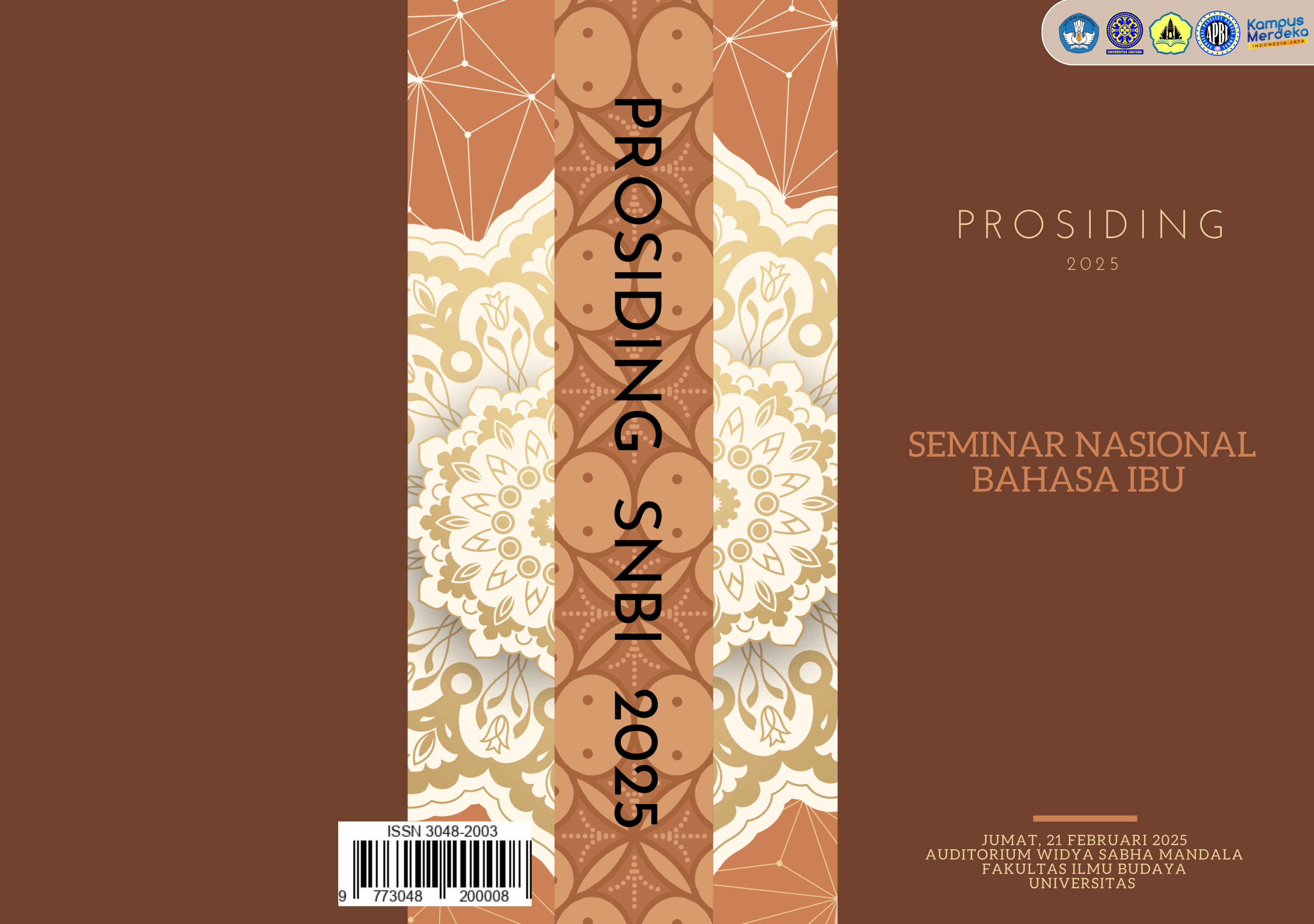METATESIS DALAM BAHASA GAUL BAHASA INDONESIA
Abstract
The use of slang or colloquial language is very common in society. New information continues to develop and the use of language is increasingly varied. This can be seen in the variation in language use, especially among today's young people. Words in Indonesian experience structural changes to form new forms with the same meaning. Slang in this study was studied using the theory of generative phonology with a metathesis approach. Metathesis is a change in the placement of phonemes without changing the original meaning of a basic form. The method used is to observe and record with the presentation of data analysis results using formal-informal methods. This study found the process of changes in phonemes and syllables The data found were 10 data, namely [kuwi], [??b], [s?t?r?h], [sabi], [ut?s], [aUd], [agIt], [k?b?m], [kIsmIn] and [kane]. From the data, the metathesis process is described. Therefore, it can be concluded that there are no specific rules that cause metathesis in this slang language to occur because the exchange patterns are abstract and unpredictable.

 Dikelola oleh Program Magister dan Doktor Ilmu Linguistik Fakultas Ilmu Budaya Universitas Udayana
Dikelola oleh Program Magister dan Doktor Ilmu Linguistik Fakultas Ilmu Budaya Universitas Udayana
